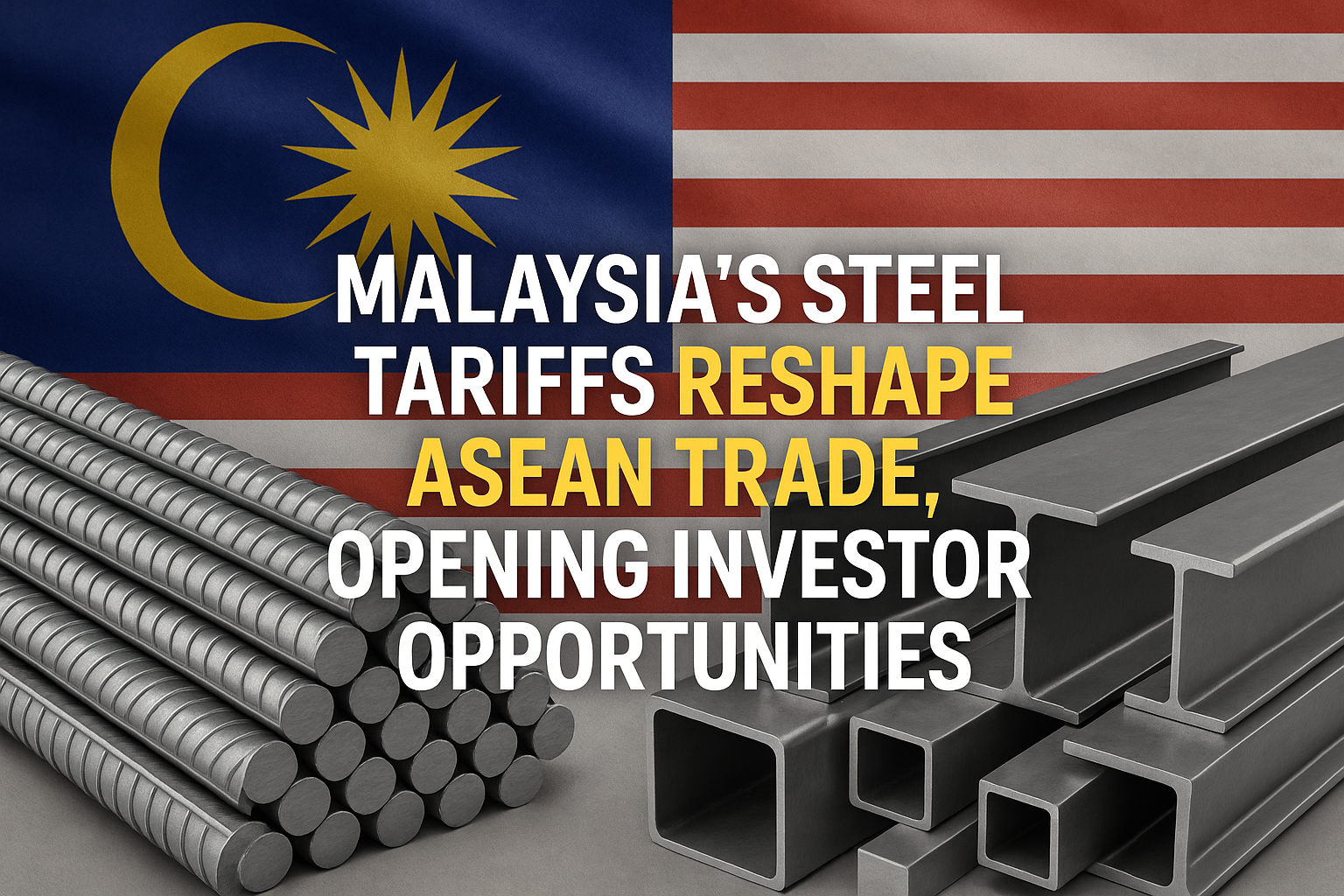India–US Trade Tensions Rise Over Steel and Auto Tariffs NMDC Limited reports a 38% drop in Q4 FY24 consolidated net profit RINL to Raise $23 Million Through Land Sales Amid Crisis

Malaysia has implemented final anti-dumping duties on tinplate and flat-rolled steel imports from China, India, Japan, and South Korea, effective through 2030. Aimed at protecting domestic producers from underpriced imports, the duties—ranging from 4.48% to 36.8%—are set to impact regional trade patterns and investment strategies.
Local steelmakers like PERSTIMA are positioned to benefit, gaining competitive ground in Malaysia’s industrial landscape. Meanwhile, exporters such as Baowu Steel and POSCO may shift focus to markets like the U.S. or UAE to offset losses.
Malaysia’s policy strategically exempts automotive-grade and transformer finwall steel to safeguard key sectors. This nuanced approach allows automakers like Proton and Toyota Malaysia to maintain supply stability while encouraging greater reliance on domestic materials.
However, rising steel costs could squeeze margins for companies lacking localized supply chains. Investors should monitor firms with strong vertical integration or resilient cost strategies, such as UMW Holdings.
Beyond national borders, Vietnamese and Thai steelmakers stand to gain from diverted demand. Companies like Hoa Phat Group and Siam Steel may expand their footprint in Malaysia, while infrastructure-driven firms across ASEAN could benefit from increased local steel sourcing.
For investors, the message is clear: those who align with regional shifts, favor local suppliers, and diversify across infrastructure and automotive equities will be best positioned to navigate and profit from Malaysia’s evolving steel policy.
Also Read : Tata Motors Opens 8th Vehicle Scrapping Facility in Kolkata Vedanta Halts $2.5 Billion Steel Sale Amid Market Uncertainty